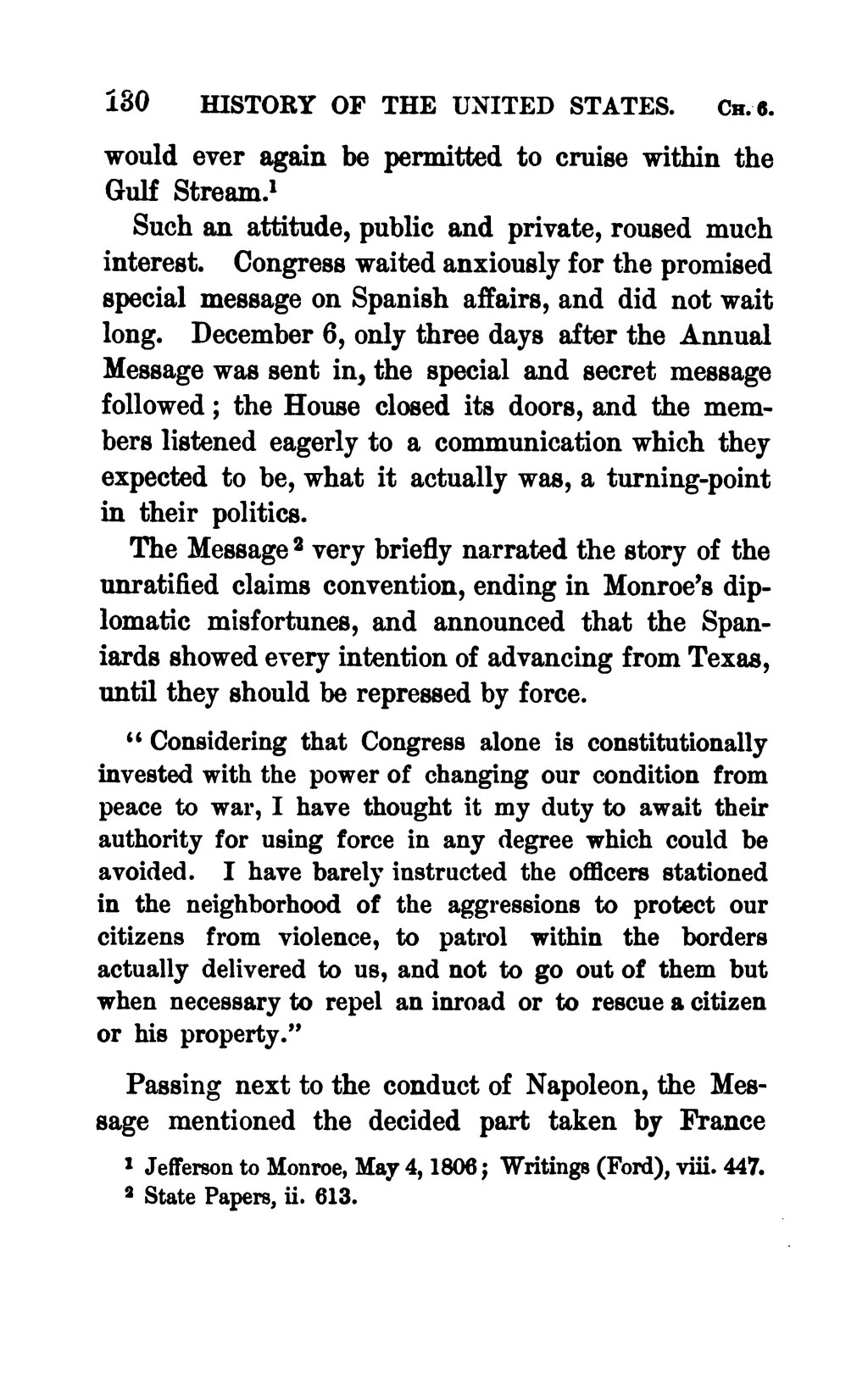would ever again be permitted to cruise within the Gulf Stream.[1]
Such an attitude, public and private, roused much interest. Congress waited anxiously for the promised special message on Spanish affairs, and did not wait long. December 6, only three days after the Annual Message was sent in, the special and secret message followed; the House closed its doors, and the members listened eagerly to a communication which they expected to be, what it actually was, a turning-point in their politics.
The Message[2] very briefly narrated the story of the unratified claims convention, ending in Monroe's diplomatic misfortunes, and announced that the Spaniards showed every intention of advancing from Texas, until they should be repressed by force.
- "Considering that Congress alone is constitutionally invested with the power of changing our condition from peace to war, I have thought it my duty to await their authority for using force in any degree which could be avoided. I have barely instructed the officers stationed in the neighborhood of the aggressions to protect our citizens from violence, to patrol within the borders actually delivered to us, and not to go out of them but when necessary to repel an inroad or to rescue a citizen or his property."
Passing next to the conduct of Napoleon, the Message mentioned the decided part taken by France
